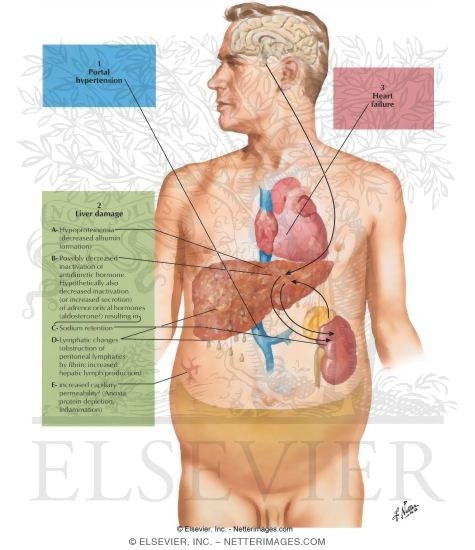What are the complications for ascites?
Infections are another serious complication of ascites. In patients with ascites related to portal hypertension, bacteria from the gut may spontaneously invade the peritoneal fluid (ascites) and cause an infection. This is called spontaneous bacterial peritonitis or SBP. Antibodies are rare in ascites and, therefore, the immune response in the ascitic fluid is very limited. The diagnosis of SBP is made by performing a paracentesis and analyzing the fluid for the number of white blood cells or evidence of bacterial growth.
Hepatorenal syndrome is a rare, but serious and potentially deadly (average survival rates range from 2 weeks to about 3 months) complication of ascites related to cirrhosis of the liver leading to progressive kidney failure. The exact mechanism of this syndrome is not well known, but it may result from shifts in fluids, impaired blood flow to the kidneys, overuse of diuretics, and administration of contrasts or drugs that may be harmful to the kidney.
Can ascites be prevented?

The prevention of ascites largely involves preventing the risk factors of the underlying conditions leading to ascites.
In patients with known advanced liver disease and cirrhosis of any cause, avoidance of alcohol intake can markedly reduce the risk of forming ascites. Nonsteroidal antiinflammatory drugs (ibuprofen [Advil, Motrin, etc.]) should also be limited in patients with cirrhosis as they may diminish the blood flow to the kidneys, thus, limiting the salt and water excretion. Complying with dietary salt restrictions is also another simple preventive measure to reduce ascites.




0 comments:
Post a Comment